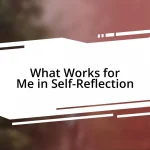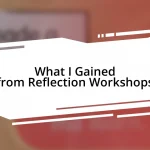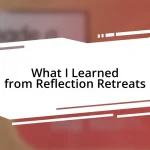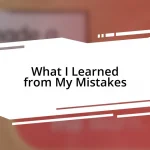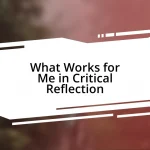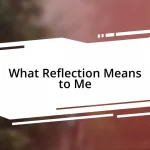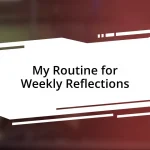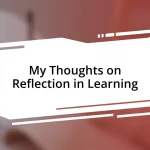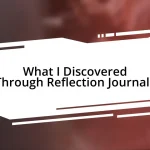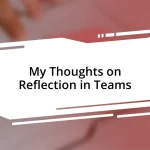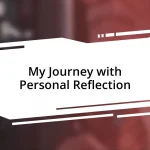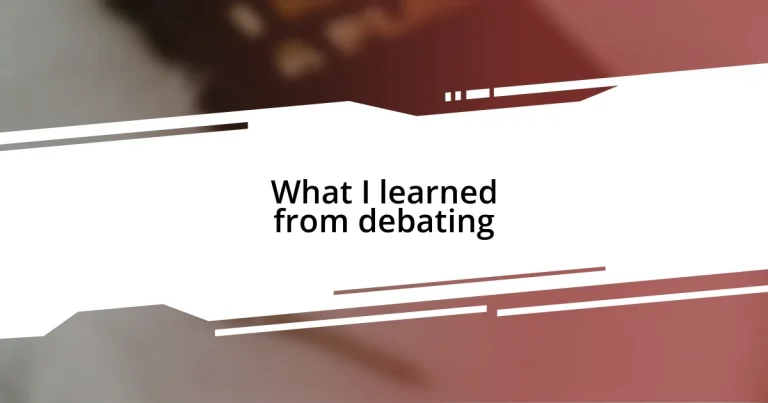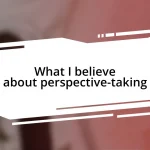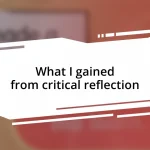Key takeaways:
- Understanding debate structure is crucial for effective argumentation, including components like opening statements, rebuttals, and closing arguments.
- Emotional intelligence enhances persuasion; sharing personal stories can connect with the audience on a deeper level.
- Active listening is essential to engage meaningfully in debates and prevents missing key points from opponents.
- Anticipating counterarguments and responding with questions can strengthen one’s position and foster a constructive dialogue.
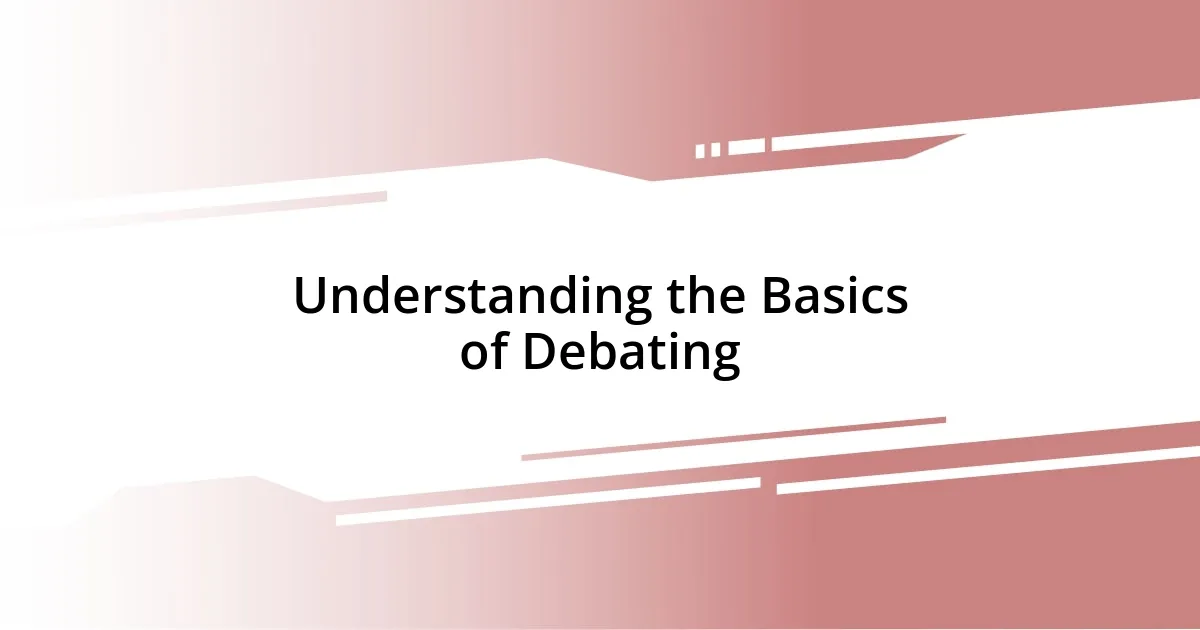
Understanding the Basics of Debating
Debating is like a dance of words, where understanding the structure is crucial. I remember my first debate; I felt overwhelmed by the rules. It wasn’t just about speaking loudly or being right; it was about following a framework that includes opening statements, rebuttals, and closing arguments. Have you ever found yourself lost in a conversation? That’s how I felt—until I grasped that each part of a debate serves a specific purpose.
At its core, debating is about persuasion and evidence. I often reflect on how effective arguments are built on solid research and logical reasoning. One memorable instance was when I debated a topic I initially knew little about. By digging deep into credible sources, I managed to present a case that not only swayed the judges but also transformed my understanding of the subject. It made me realize—how often do we take the time to truly explore a topic before forming an opinion?
Emotional intelligence plays a pivotal role in debating, too. I learned that appealing to listeners’ emotions can be just as powerful as presenting facts. During a heated debate on climate change, I shared a personal story about my family’s struggles with flooding. As I spoke, I could see the audience shifting; they were not just hearing my argument but feeling it. Isn’t it fascinating how a personal touch can turn data into a compelling narrative? That’s when I truly understood that debating is not just about winning; it’s about connecting with people on a deeper level.
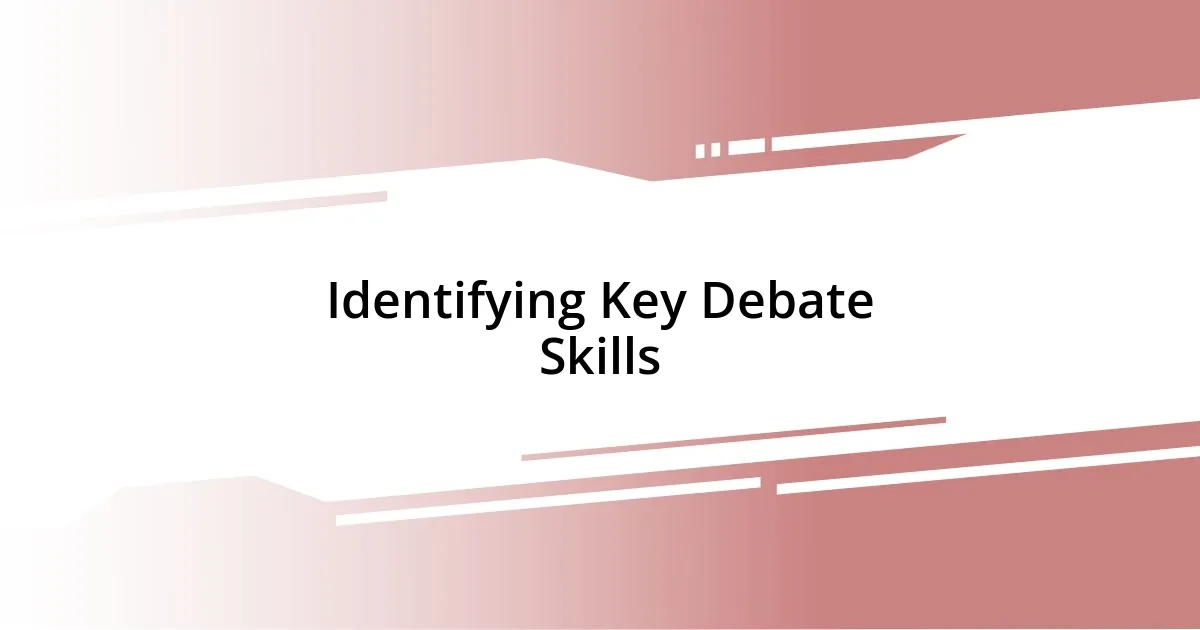
Identifying Key Debate Skills
When it comes to identifying key debate skills, critical thinking stands out as one of the most essential. I remember a debate I participated in about education reform. Instead of simply arguing my viewpoint, I had to analyze the opposition’s argument thoroughly. By dissecting their claims, I not only strengthened my case but also learned to anticipate counterarguments. This skill has become invaluable in my everyday discussions, allowing me to engage more meaningfully with varying perspectives.
Research skills are equally vital in preparing for a debate. I vividly recall preparing for a debate on renewable energy. I spent hours combing through articles and studies, creating a resource bank of data. The moment I cited a piece of research that challenged a common misconception, I felt a rush of confidence. It reinforced my belief that the foundation of a strong argument lies in credible sources. How often do we underestimate the power of being well-informed?
Lastly, effective communication goes beyond just speaking; it includes body language and tone. In one debate, I noticed how my opponent’s posture conveyed confidence, even when their argument faltered. I began to pay attention to my own delivery. By incorporating deliberate gestures and varying my tone, I was able to engage the audience more effectively. I’ve found that this skill transcends debating; it enriches my everyday interactions and helps me share my ideas with clarity.
| Debate Skill | Description |
|---|---|
| Critical Thinking | Analyzing arguments and counterarguments to strengthen one’s position. |
| Research Skills | Gathering credible information to support claims and enhance understanding of the topic. |
| Effective Communication | Utilizing body language and tone to engage the audience and convey confidence. |
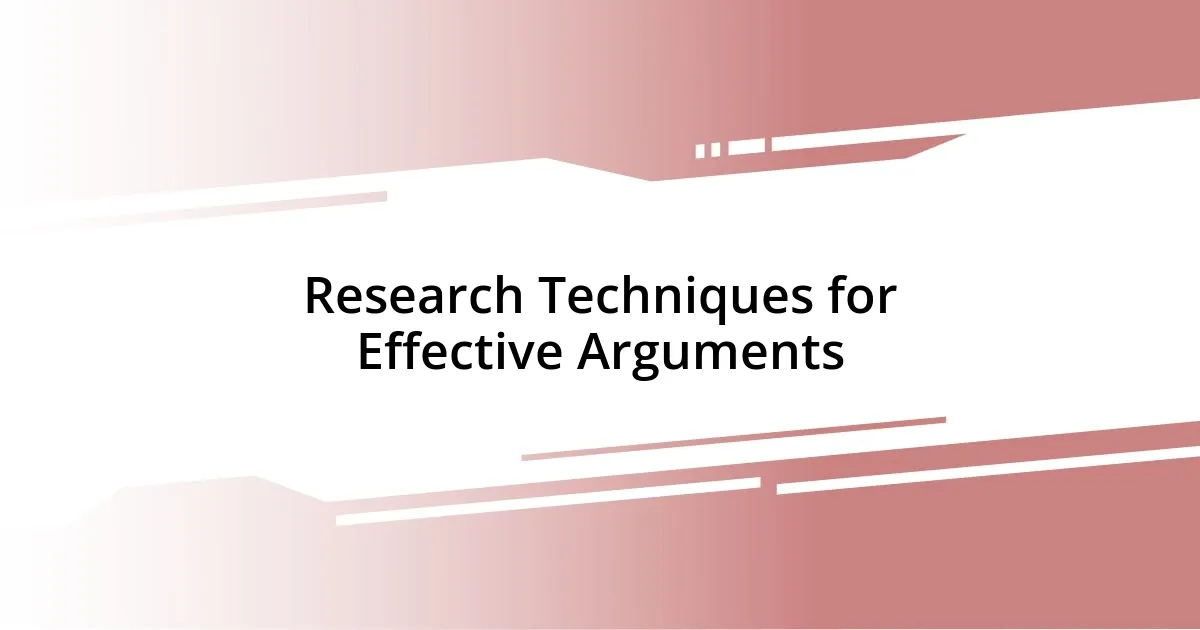
Research Techniques for Effective Arguments
When it comes to crafting effective arguments, I can’t emphasize enough how crucial solid research techniques are. The first time I tackled a complex topic in a debate, I felt like I was searching for a needle in a haystack. I soon learned that relying on a well-organized approach made all the difference. I started using various strategies to streamline my research process, which kept me focused and made the information more digestible.
Here’s what I found helpful:
- Use Credible Sources: Focus on peer-reviewed journals, reputable newspapers, and expert blogs to ensure the information is trustworthy.
- Create an Outline: Jot down key points and categorize them into themes; this helps clarify your argument and shows connections between ideas.
- Keep an Ongoing List: Maintain a running list of sources and notes for quick access during preparation, making it easier to cite evidence when needed.
I also learned to embrace the art of synthesis. One memorable debate had me scrambling to connect various studies that seemed unrelated at first glance. As I pieced together those threads, it became apparent how they all related to the broader issue. This not only deepened my understanding but also allowed me to present a more nuanced argument, which left a lasting impression on the judges. The realization of how intertwined knowledge can be was profound—what other topics might I be overlooking in such a manner?
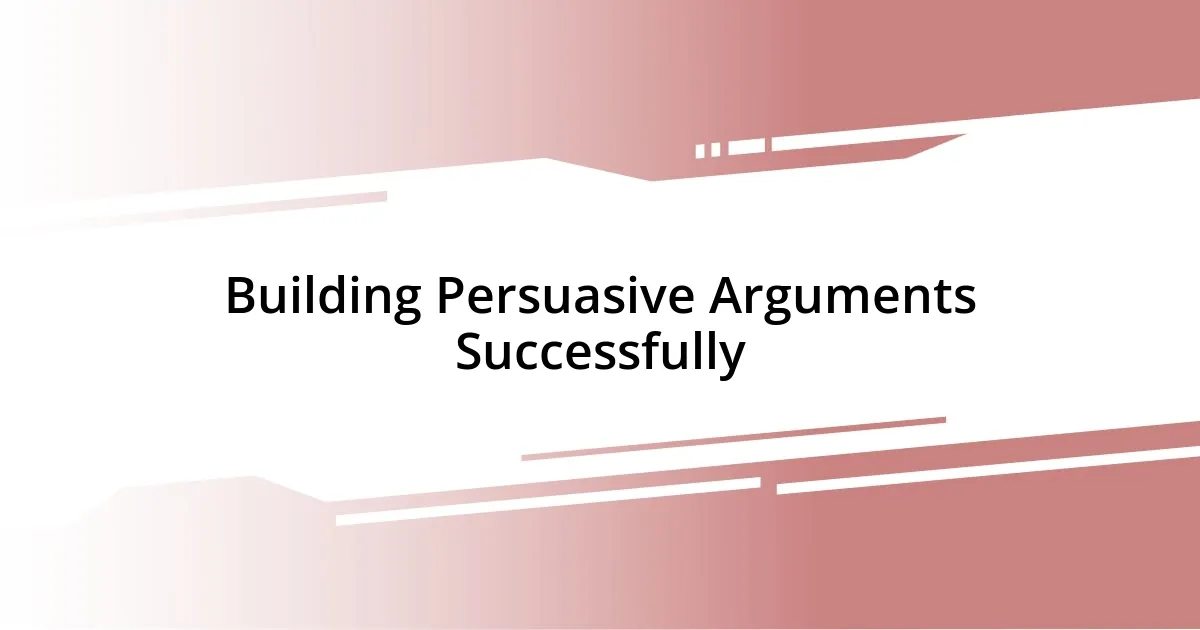
Building Persuasive Arguments Successfully
Building persuasive arguments successfully requires a strategic approach that combines emotional engagement with logical reasoning. I remember a moment when I was debating a deeply polarizing issue and realized that merely presenting facts wasn’t going to sway my audience. Instead, I shared a personal story related to the topic, and it transformed my entire argument. When I connected with my audience on an emotional level, I could see their expressions change; that was the moment I understood the power of storytelling in persuasion. How often do we forget that facts alone don’t always win hearts?
Additionally, anticipating the opposing viewpoint is crucial. During one debate, my opponent threw a curveball by citing an argument I hadn’t considered. Instead of feeling flustered, I turned it around and acknowledged its validity before presenting my counterpoint. This experience taught me that showing respect for opposing arguments not only demonstrates confidence but also enhances one’s credibility. It makes you wonder: how frequently do we overlook the strength in acknowledging the other side’s perspective?
Finally, clarity is king in persuasive argumentation. I recall a debate where I was so passionate about my stance that I forgot to articulate my main points clearly. It left my audience a bit lost and ultimately diminished the impact of my argument. I learned then that it’s not just what you say, but how you structure it that matters. Keeping things simple and straightforward ensures that your key messages resonate and stick with your audience long after the debate is over. Wouldn’t it be wonderful if every argument we made could leave a lasting impression?
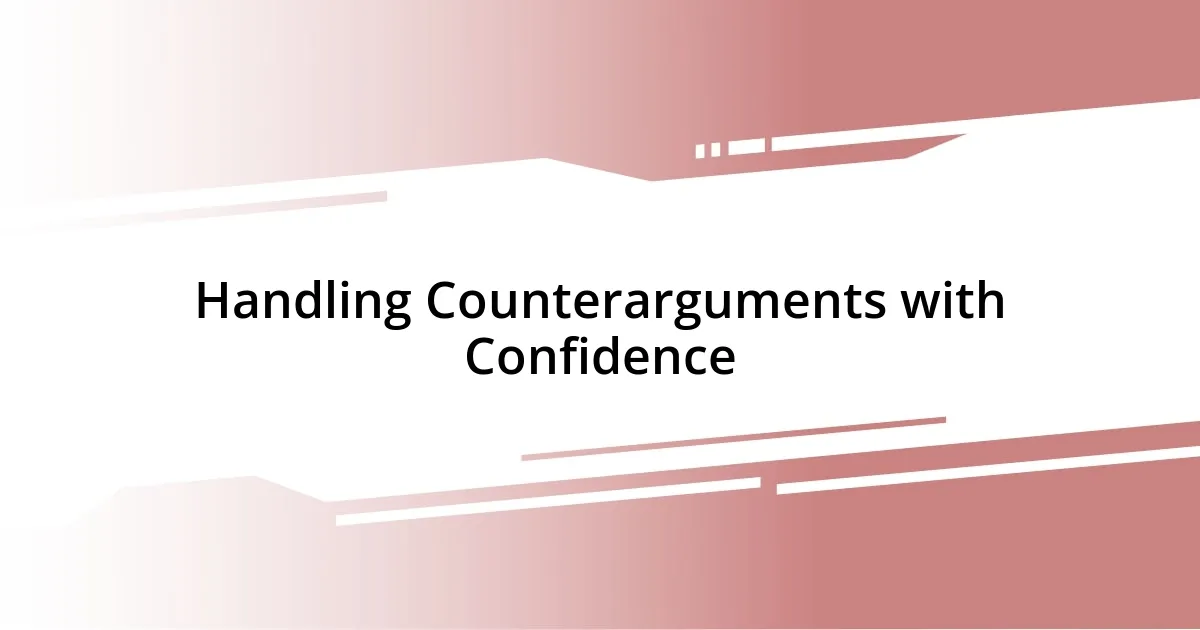
Handling Counterarguments with Confidence
Handling counterarguments with confidence is an art I’ve had the pleasure to refine over time. Early in my debating journey, I remember facing a particularly fierce opponent who brought up surprising points that challenged my worldview. In that moment, rather than freezing, I took a deep breath and acknowledged their perspective. It was surprising to see how simply recognizing the strength of their argument not only calmed my nerves but also allowed me to pivot gracefully into my rebuttal.
One lesson I learned is the importance of remaining composed amid disagreement. During a debate on healthcare policy, I faced a barrage of counterpoints that initially felt overwhelming. Instead of letting anxiety cloud my judgment, I focused on my breathing and maintained eye contact, which gave me a sense of control. I realized that confidence isn’t just about having the right facts—it’s also about owning the space you occupy in the discussion. Have you noticed how engaging with your opponent’s points can actually strengthen your position?
I also believe in the power of responding with questions. In a recent debate, when my opponent presented a strong counterargument, I countered by asking them to elaborate on their reasoning. Not only did this give me time to think, but it also positioned me as someone genuinely interested in understanding their viewpoint. By framing my responses as questions, I fostered a dialogue instead of a confrontation. This technique helped diffuse tension and often caught my opponents off guard. Is there a time when asking the right questions changed the course of your discussion?
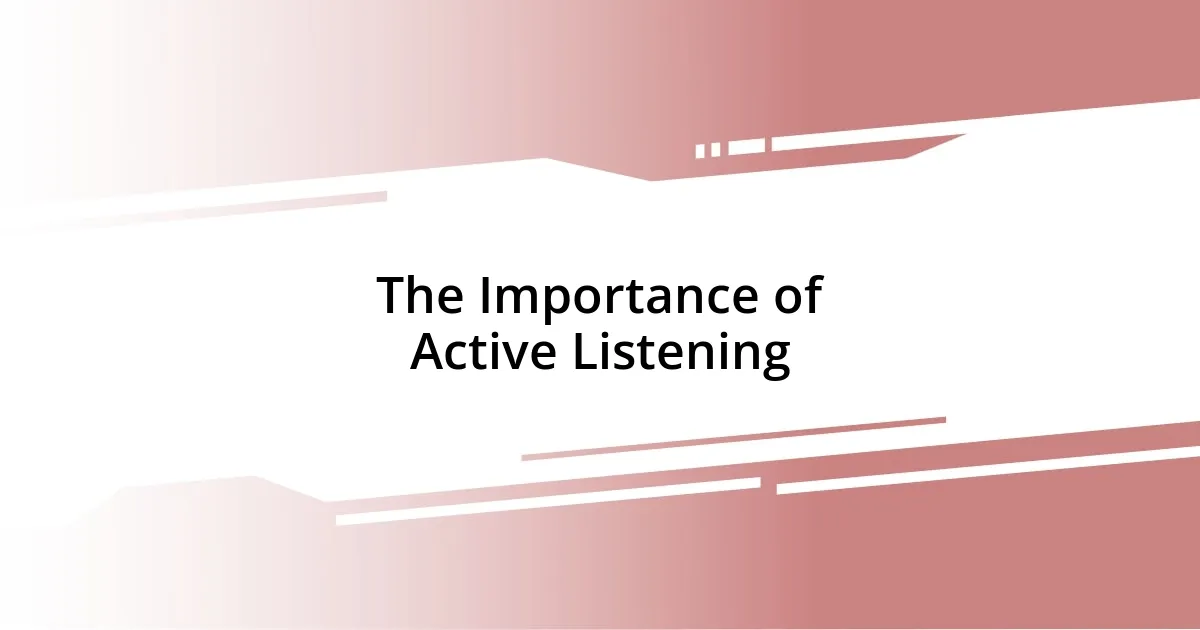
The Importance of Active Listening
Active listening is a skill that truly transformed my debating experience. I remember a time when I was caught up in my own thoughts, preparing my next argument while my opponent was speaking. As I strategically plotted my response, I missed a crucial point they made. Later, when they highlighted that point in their rebuttal, I felt like I’d stepped on a landmine. This experience drove home the importance of genuinely absorbing what others say; it’s not just about waiting for your turn to speak.
Moreover, I discovered that active listening fosters a more respectful and fruitful dialogue. When I focused intently on my opponent’s words, I often found myself nodding along, which was met with appreciation—a subtle signal that I valued their input. That simple act not only built a rapport but also encouraged them to open up, making our exchange more insightful. Have you noticed how a few nods or affirmations can create a more open atmosphere in discussions?
On occasion, I’ve used active listening not just to respond, but to ask clarifying questions that deepened the conversation. I vividly recall a debate where my opponent shared an emotional anecdote that really resonated with me. Instead of jumping into my counterargument, I asked, “Can you explain more about how that experience shaped your views?” This approach not only enriched the discussion but allowed me to address their points more effectively later. It’s a reminder that by truly listening, we can elevate the quality of our debates—from mere exchanges of points to meaningful conversations.

